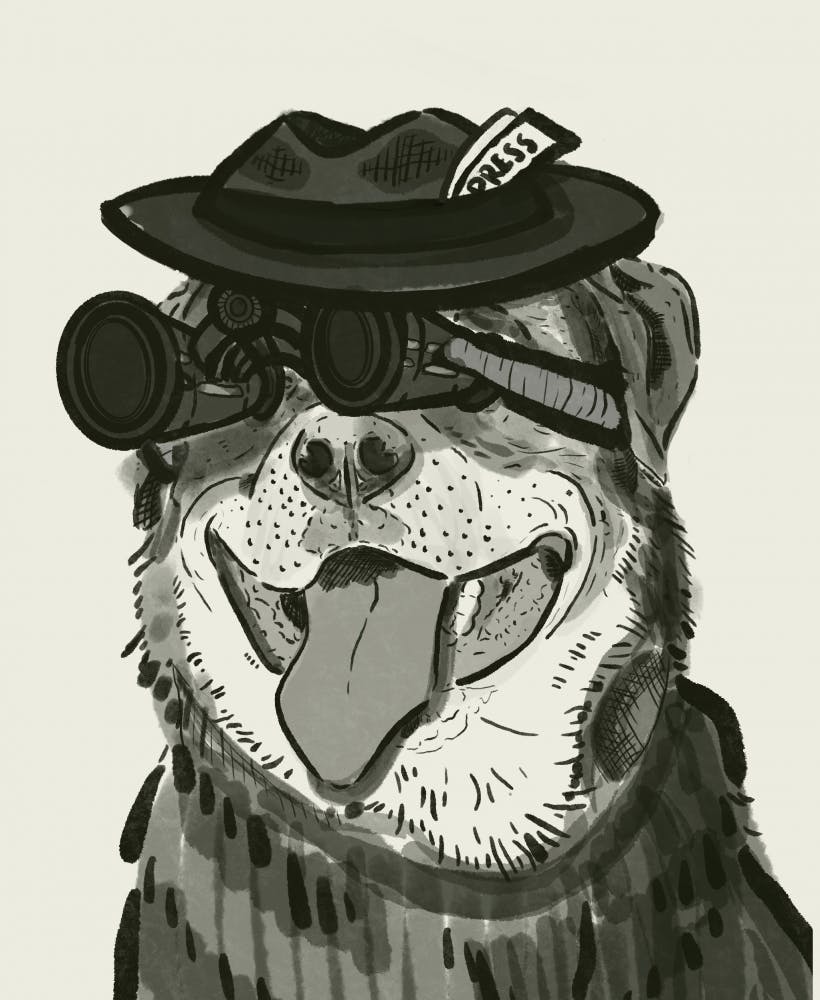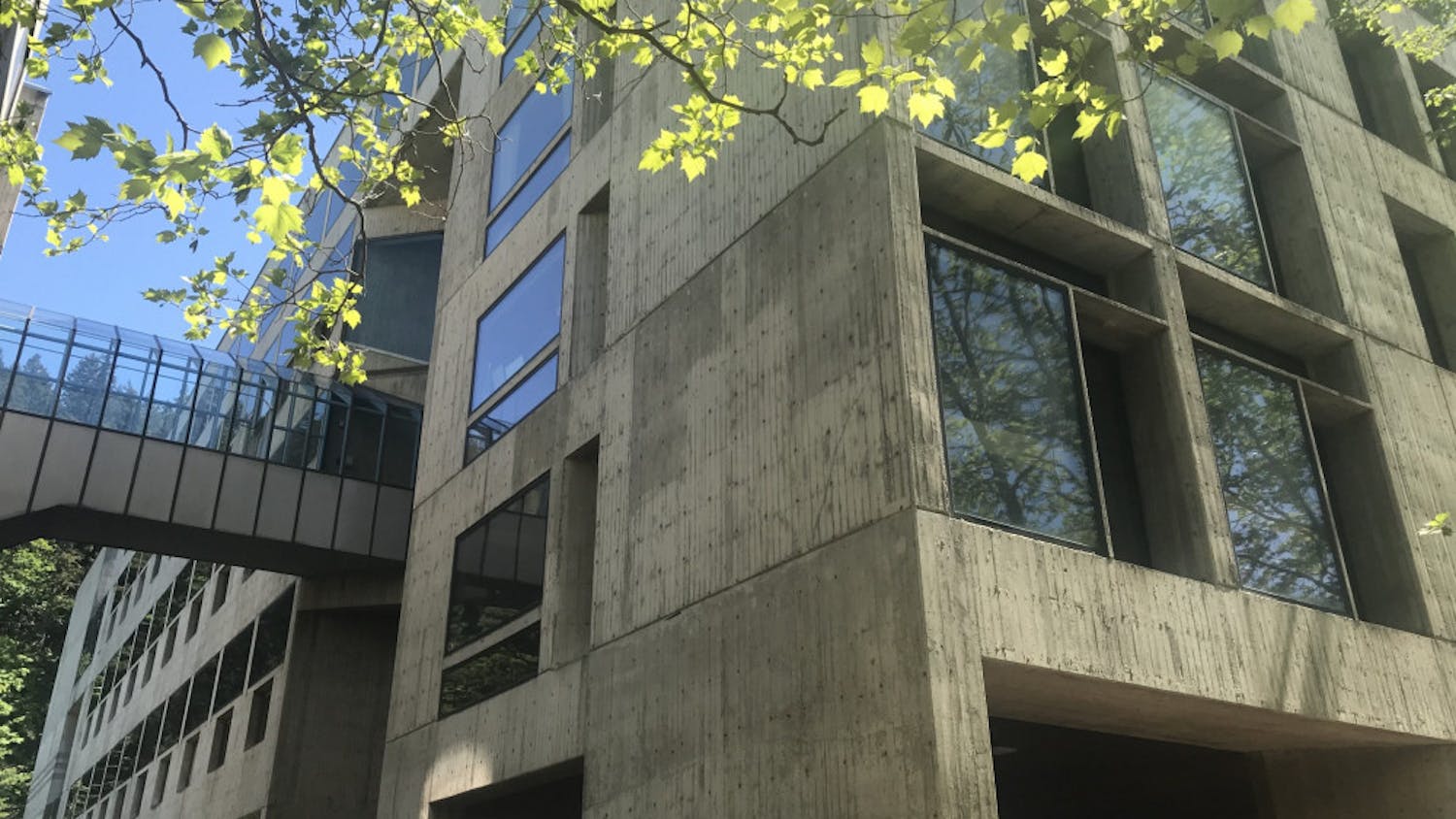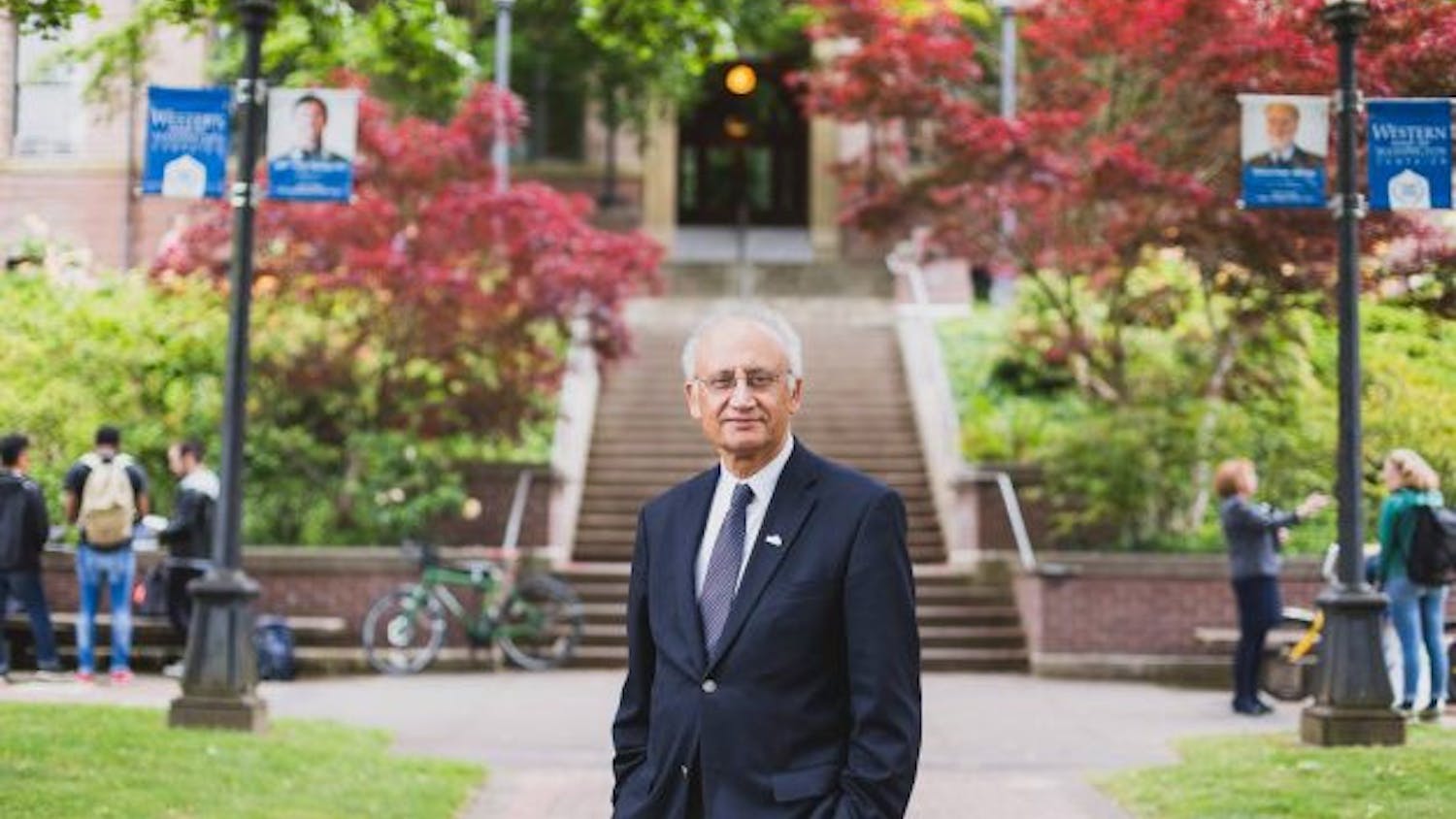
A dog wearing binoculars and a press hat sits in front of a gray background. Being a watchdog journalist isn't all fuzz and fluff. // Illustration by Sophia Lindstrom
Journalists are often called “watchdogs.”
But what does this mean, especially in the context of student journalists reporting on the goings-on of a college campus?
“Watch-dogging is simply saying, ‘I'm here to watch the kids and make sure nobody sneaks in and gets in tonight.’ Right? It's like Nana from ‘Peter Pan,’” said Barbara Allen, director of college programming for the Poynter Institute.
Like Nana, the loveable family dog who serves as nanny in “Peter Pan,” watch dogs pay guard important places and alert those who need to know if anything goes awry. For journalists, that means alerting members in the community when something strange might be going on in trusted organizations.
Including colleges like Western Washington University.
Asia Fields is a Western alumna who works as an emerging investigative reporter at the Seattle Times.
Fields recently reported on issues within the Office of the Internal Auditor at Western for the Seattle Times. Her article tells the story of current litigation by former internal auditor Antonia Allen to the university after her termination in 2019.
Allen’s predecessor, Matt Babick, also sued the university, claiming he resigned under the threat of termination. After Allen’s termination, longtime registrar David Brunnemer retired. Another former auditor, who worked with both Babick and Allen, said there was a “culture of fear” at Western, Fields said.
Fields started the work of reporting on this to inform Washington readers in early 2020 after receiving a tip.
Fields reached out to Western administrators who she said declined to answer any of her questions. Fields said she got the runaround from Western when asking questions like why a replacement for Allen hadn’t been hired.
When Fields initially reached out to Western’s Communications Director Paul Cocke in early 2020, he said they were still looking for a replacement. In December 2020, Fields followed up to ask if Western was still looking for a replacement. Cocke declined to answer.
President Sabah Randhawa sent an email to Western faculty on Jan. 12 addressing the article. In the email, he wrote that the hiring process has been delayed by the pandemic and the university “will soon initiate the process of hiring a full-time internal auditor through a nationwide search.”
Barbara Allen said the first role of student newsrooms like the Front is “to serve as a watchdog for the campus.”
The Front is an independent voice of student journalists at Western, with the entire editorial and reporting staff composed of students. It’s the behind the scenes work of journalists — attending budget meetings, following political press releases, filing public records — that make up “watch-dogging.”
So, when does it become crucial for readers to know what is going on in an administration, like the Office of the Internal Auditor at Western?
Fields said she knew of Babick being pushed out in 2015, but when someone reached out to her in December 2019 with information on the Antonia Allen lawsuit and the subsequent retirement of Brunnemer, she felt it was something worth looking into.
Western is a public university. Student journalists at public universities are protected in much of the same ways professionals are, said Mike Hiestand, senior legal counsel at the Student Press Law Center.
“Public universities are heavily funded by taxpayer dollars,” said Barbara Allen. “There's an expectation that because it's an arm of the government, they have to be transparent.”
This makes the job of journalists in some ways easier, like that records relating to employee’s termination are public, Allen said.
But with public institutions comes more of a desire for trust from the community.
Allen spoke to the public’s standard for government officials, such as university administrators.
“I mean, they're entrusted to take care of our kids,” Allen said.
Ultimately, Fields and Allen both emphasized the importance of watchdog journalism. “It is absolutely possible to adore your university and report on it,” Allen said.
Hiestand said student publications in some areas are beginning to rival local news coverage, or even be the only voice of independent truth in a community. And he said beyond watchdog coverage of college campuses, student journalists have a responsibility to attend to local matters in their community.
“It's a good time to be, you know, a local lawmaker when nobody's really watching,” Hiestand said.
While a culture of mistrust of journalists has evolved recently in the country, Allen expressed there is the inherent obligation of journalists to still hold truth to power, giving readers what they need to know.
“I think that you have an obligation to your citizens, whether they trust you or not to allow them the opportunity to see what's going on in their community,” Allen said.

Lauren Gallup (she/her) is the spring 2021 managing editor of The Front. She is a fourth-year news/editorial journalism major, whose writing has been featured in Klipsun, 425 and South Sound magazines. Her reporting seeks to answer, provoke and increase understanding. You can find her retweeting great journalism @thelaurengallup or reach her at laurengallup.westernfront@gmail.com.





